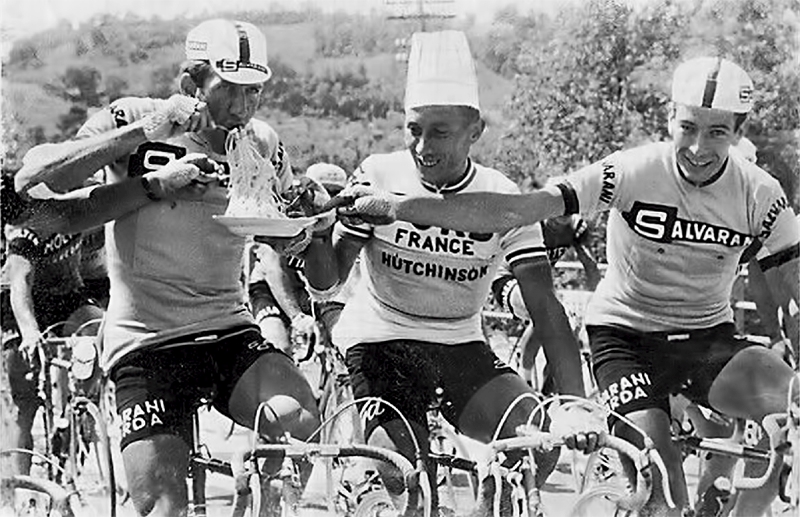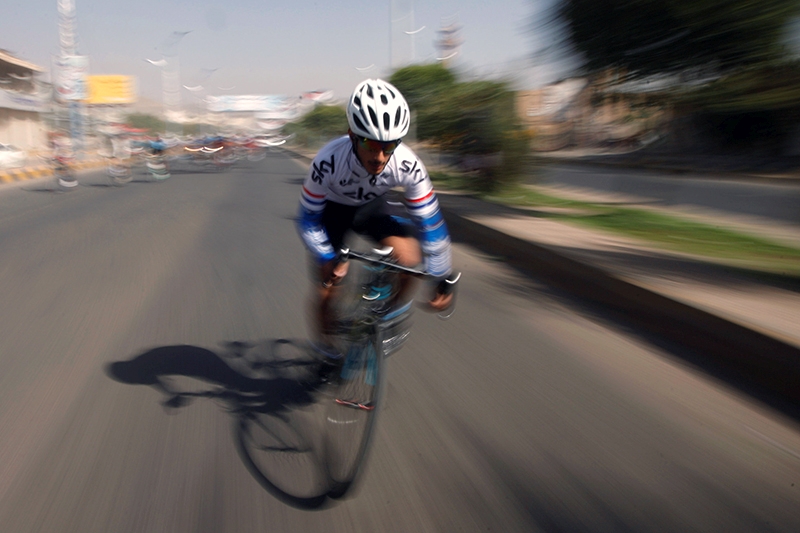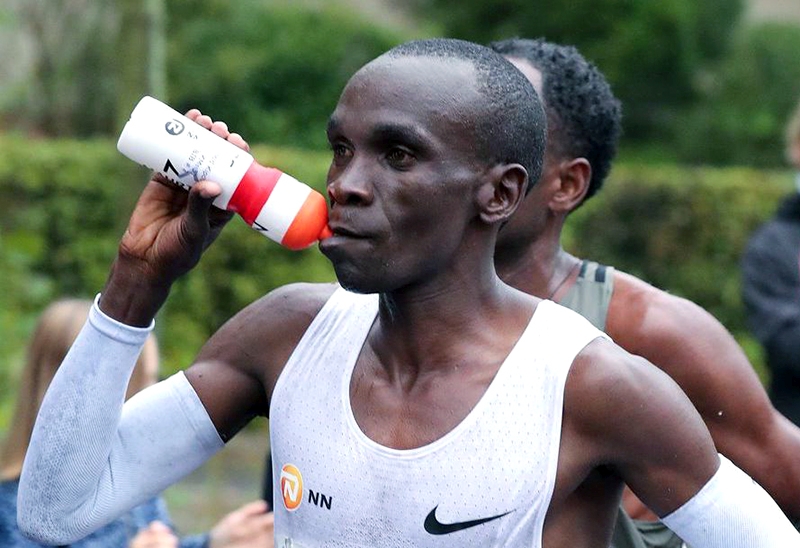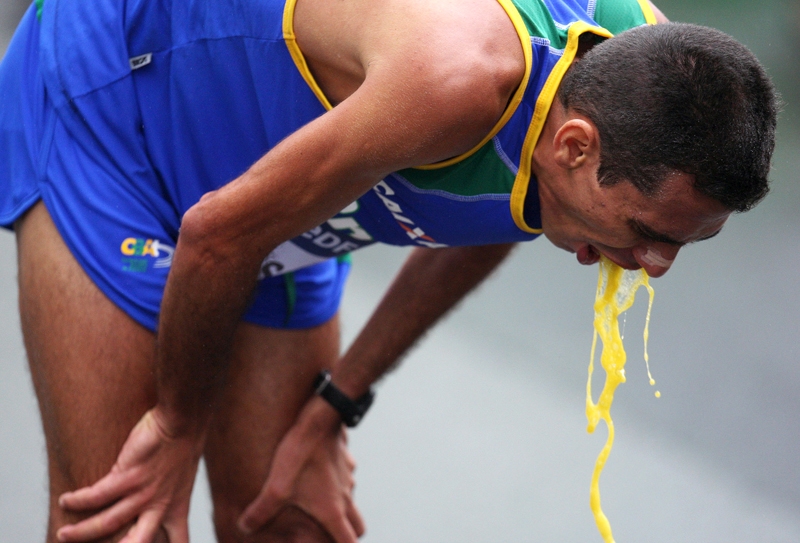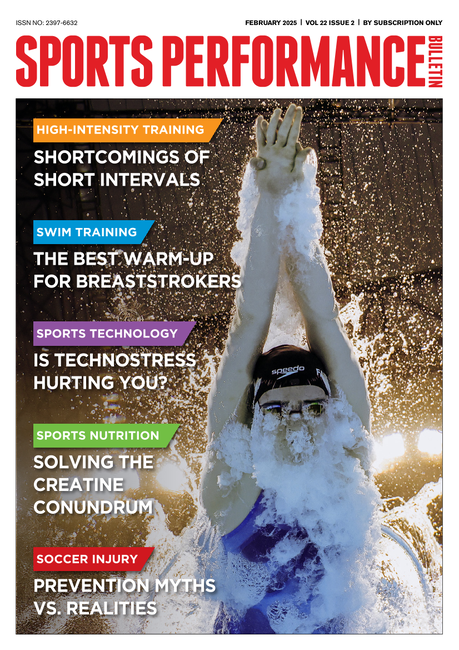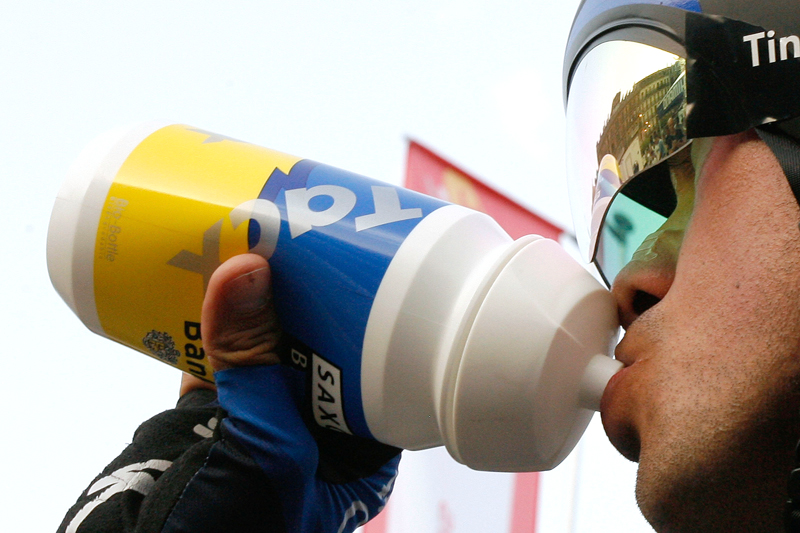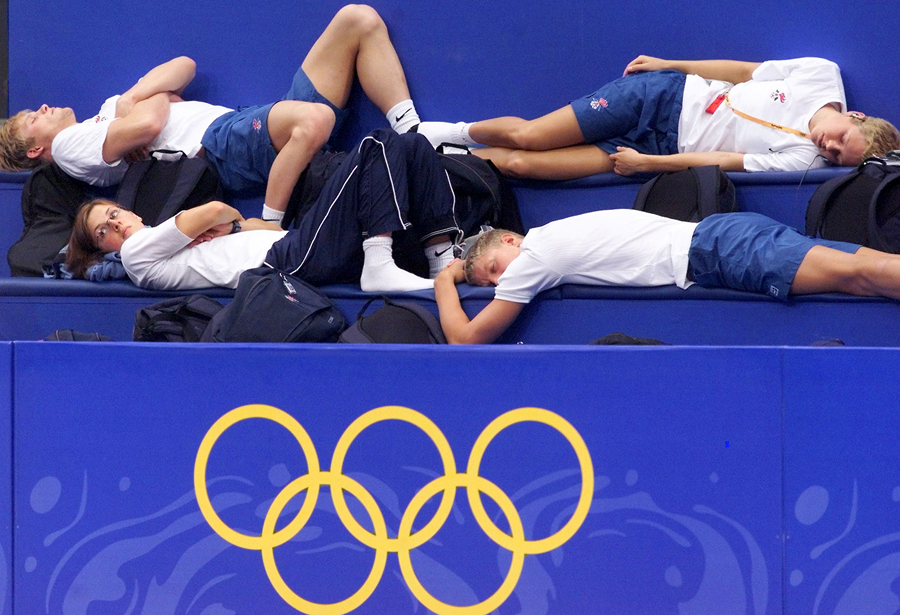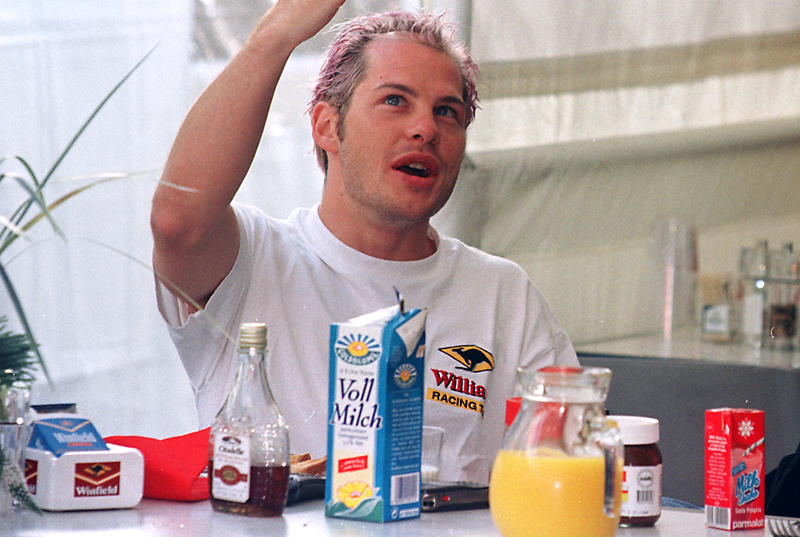You are viewing 1 of your 1 free articles. For unlimited access take a risk-free trial
Carbohydrate on the move: spit or swallow?
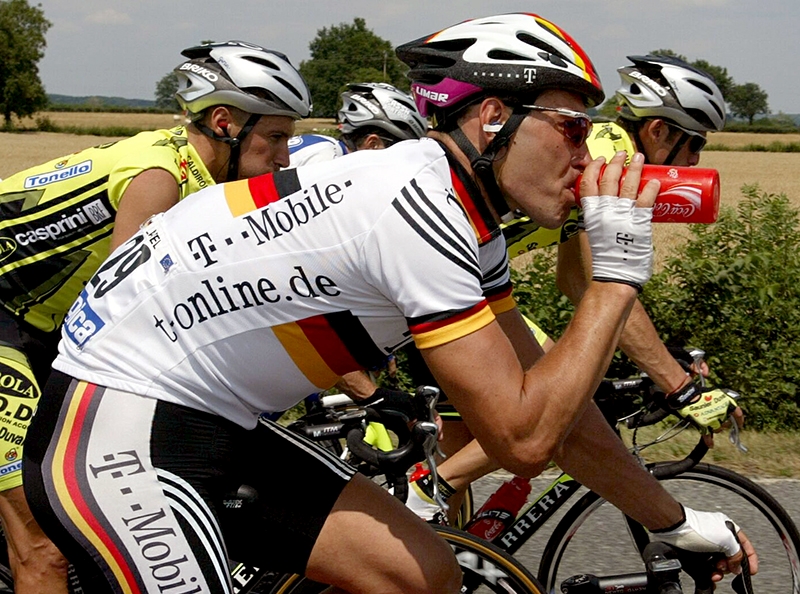
Bizarre as it seems, some research has indicated that endurance athletes can go faster without actually swallowing their favourite sports drink. But is this really the case? Andrew Hamilton explains…
Of all the sports supplements, the carbohydrate drink is king and for good reason. Numerous studies over the past 30 odd years have shown that consuming these drinks to replenish carbohydrate on the move (or at the very least, slow down the rate at which your body’s stores of muscle glycogen are depleted) prolongs time to exhaustion and improves endurance performance.In the last 10 years, our understanding of carbohydrate nutrition for athletes has moved even further forward. A major advance came when Professor Asker Jeukendrup and his colleagues showed that when a carbohydrate drink containing both glucose and fructose is ingested, the carbohydrate is absorbed significantly more rapidly leading to even more gains in performance – as much an additional 8% over a conventional glucose-only drinkMed Sci Sports Exerc 40, 275-281, 2008. Based on his research and that of others, Jeukendrup has since suggested the carbohydrate drink use guidelines as shown in figure 1 below.
Figure 1: Recommended carbohydrate (CHO) intake during exercise in order to optimise performanceSports Performance Bulletin 285, 1-4, 2010
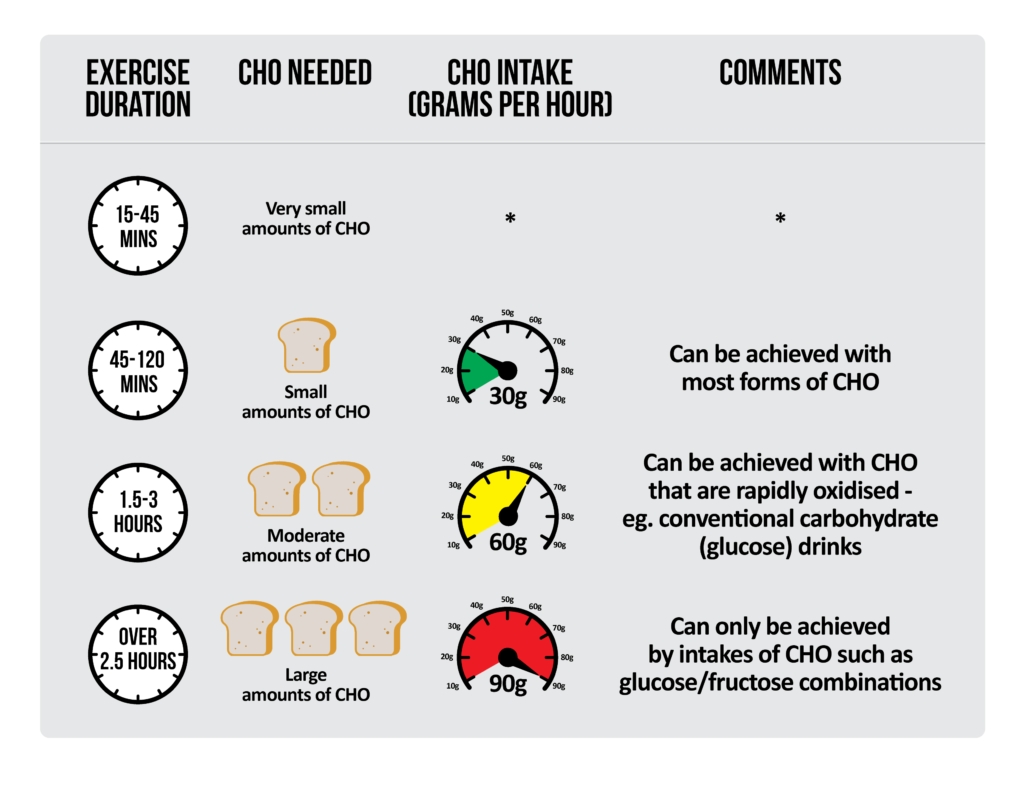
Carbohydrate mystery
Despite all this research, there has remained a bit of a mystery about carbohydrate and shorter duration performance. Twelve years ago, Jeukendrup discovered that cyclists who performed a 40-km time-trial with and without carbohydrate were on average one minute faster with carbohydrateInt J Sports Med 18(2): 125-9, 1997. This was unexpected because:- During exercise of one hour or less duration, low blood sugar doesn’t develop;
- It takes time before any ingested carbohydrate is absorbed, transported to and used by the muscles, so only a small percentage of the carbohydrate ingested (too small to have an effect) during these time trials was actually used as fuel.
Brain and mouth connection
Scientists are now convinced that the above effect occurs as a result of a ‘brain-mouth’ connection (see figure 2). We know for example that taste influences mood and we also know that if you’ve ‘hit the wall’ because you’ve run out of muscle glycogen and your blood sugar is low, merely biting into a sweet snack can almost instantly reduce the feelings of weakness and dizziness. In short, you feel better long before the carbohydrate has found its way into the bloodstream and the brain!Figure 2: Carbohydrate receptors - the brain and mouth connection
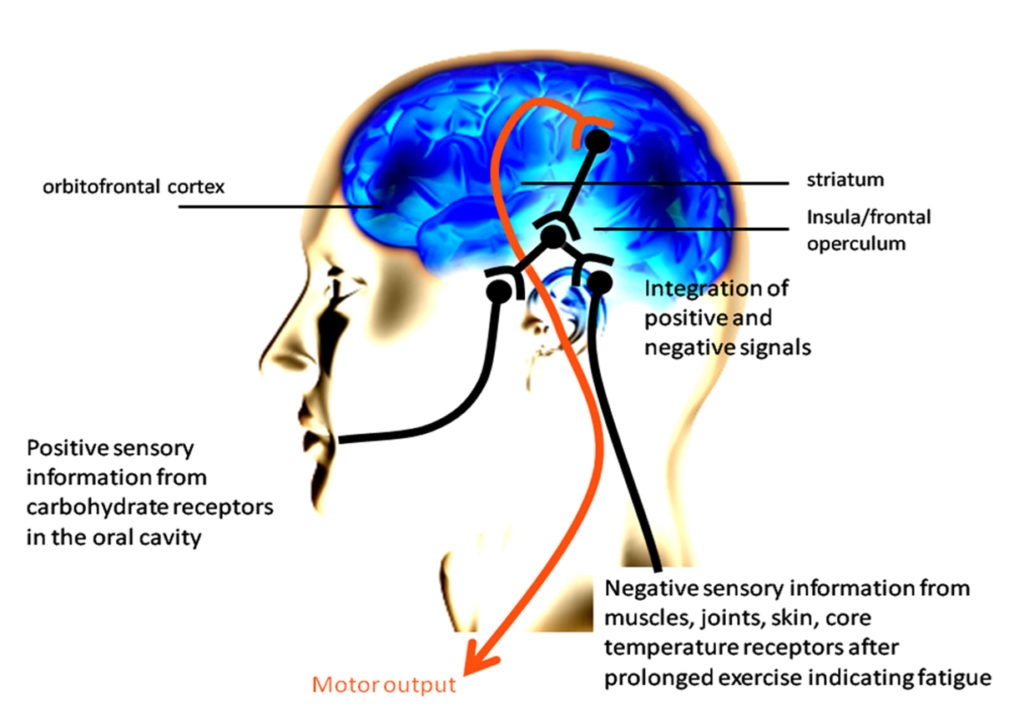
To test this, Jeukendrup asked cyclists to repeat the 40km time trial, but this time, subjects rinsed their mouth for 5 seconds with the drink and then spat the drink out into a bowl — ie they were not allowed to swallow any of the drinkMed Sci Sports Exerc 36(12): 2107-11, 2004. The results were quite unexpected. Performance was improved with the carbohydrate mouth rinse, and the magnitude of the effect was the same as the effect seen in the early study with carbohydrate ingestion! The cyclists were about one minute faster, even though none of the carbohydrate had actually entered their bodies (no carbohydrate is absorbed in the mouth).
The theory (which has some support from studies using a powerful brain scanning technique called fMRI) is that when you ‘carbohydrate rinse’, carbohydrate sensors in the mouth signal to the brain that food is on its way, thus reducing the perception of effort and making the exercise task easier. In effect, these receptors are telling the brain: “you have nothing to worry about, because energy is on its way!”
Questions
As is often the case in sports nutrition however, things are rarely as straightforward as they seem on initial inspection. For example, one study on cyclists looked at the effects of mouth rinsing with either a 6.4% carbohydrate solution, water (containing no carbohydrate), or no solution at all (the ‘non-rinse’ condition)Int J Sport Nutr Exerc Metab. 2013 Feb;23(1):48-56. It found that the time taken to complete a time trial was less when either carbohydrate was used as a mouth rinse or when no rinsing took place at all. In other words, the slowest times were recorded when the cyclists rinsed with plain water. In scientific terms, this suggested that there was little evidence that rinsing with a carbohydrate drink was any better than no rinsing at all. However rinsing with a carbohydrate-free drink definitely produced a poorer performance!In the last few years, a large number of further studies on carbohydrate mouth rinsing and performance have been carried out and it’s fair to say that the results have been very mixed, with some suggesting performance benefits while others suggesting no benefits. One comprehensive review study (a summary of a number of previous studies – see table 1) concluded that while there did seem to be some potential benefits from mouth rinsing, the magnitude of any benefits was small enough to introduce quite a lot of uncertainty. So while the performance benefits (last column) seem at first glance to be persuasive, the large variability in methodological factors — for example, the duration and number of mouth, the concentration of the carbohydrate rinses, the type of exercise being performed, whether the athletes were fasted beforehand etc. – made it actually quite difficult to say unequivocally that rinsing consistently offers significant benefits.
Table 1 Summary of previous studies into carbohydrate rinsing
| Type of exercise | Fasting time (hours) before exercise | Type of carbohydrate solution (and length of mouth rinse) | No. of rinses | Time/distance/power | Performance benefit (%) |
|---|---|---|---|---|---|
| Cycling Time-trial ~1 hour at 75% max power | 6 | 10 secs glucose (6.4%) vs. placebo (saccharin + aspartame in water) | 8 | Time (min) 60.4 vs. 61.6 | Yes, 1.99% |
| Cycling Time-trial ~1 hour at 75% max power | 6 | 10 secs maltose (6.4%) vs. PLA (saccharin and aspartame in water: | 8 | Time (min) 62.6 vs. 64.6 | Yes, 3.19% |
| Cycling Time-trial ~1 hour at 75% max power | 4 | 5 secs maltose (6.4%) vs. water | 8 | Time (min) 59.6 vs. 61.4 | Yes, 3.02% |
| Running Time-trial 30 mins at 60% Vo2max | Overnight fast | 5 secs carbohydrate (6%) vs. placebo | 9 | Distance (m) 6584 vs. 6469 | Yes, 1.78% |
| Cycling Time-trial ~1 hour at 75% max power | 3 | 5 secs carbohydrate + electrolyte vs. placebo | 8 | Time (min) 61.7 vs. 64.1 | Yes, 3.89% |
| Cycling Time-trial ~1 hour at 75% max power | 2 | 5 secs maltose (6.4%) vs. water | 8 | Time (min) 68.1 vs. 67.5 | No, −0.91% |
| Cycling time trial - 30 mins | 4 | 5 secs maltose (6.4%) vs. water | 5 | Power (W) 153 vs. 146 | Yes, 4.34% |
| Cycling time trial - 30 mins | 4 | 10 secs maltose (6.4%) vs.water | 5 | Power (W) 156 vs. 146 | Yes, 6.36% |
| Cycling at 60% max power until exhaustion (all in fasted state) | 3 | 5–10 secs carbohydrate (6.4%) vs. placebo (water) | 12 | Time (min) 56.6 vs. 54.7 | Yes, 3.47% |
| Cycling at 60% max power until exhaustion (all in fasted state) | Overnight fast | 5–10 secs carbohydrate (6.4%) vs. placebo (water) | 12 | Time (min) 53.9 vs. 48.3 | Yes, 11.59% |
| Running Time-trial ~1 hour at 60% Vo2max | 14 | 5 secs carbohydrate + electrolyte (6.4%, mouth rinse without intake) vs. placebo (mouth rinse + intake) | 4 | Distance (m) 14283 vs. 14190 | No, 0.65% |
| Running Time-trial ~1 hour ~60% Vo2max | 14 | 5 secs carbohydrate + electrolyte (6.4%, mouth rinse + intake) vs. placebo (mouth rinse + intake) | 4 | Distance (m) 14515 vs. 14190 | Yes, 2.29% |
| Running Time-trial 45 mins at ~65% Vo2max | 4 | 5 secs maltose (6% maltodextrin-97% polysaccharide, 2% disaccharide, 1% glucose + 3% lemon juice) vs. placebo (3% lemon juice) | 10 | Distance (m) 9333 vs. 9309 | No, 0.26% |
| Running Time-trial ~1 hour at 60% Vo2max | 14 | 5 secs carbohydrate + electrolyte (6.4%) vs. placebo | 4 | Distance (m) 14298 vs.14086 | Yes, 1.50% |
| Cycling - Time-trial ~1 hour | Overnight fast | 10 secs maltose (10%) vs. placebo (water) | 9 | Power (W) 286 vs. 285 | Yes, 1.8% |
| Cycling - Time-trial ~1 hour | Overnight fast | 10 secs maltose (10%) vs. placebo (water) (all in fasted state) | 9 | Power (W) 282 vs. 273 | Yes, 3.4% |
Overall however, the researchers did conclude that carbohydrate mouth rinsing seems to improve performance during moderate to high-intensity exercise of at least 1 hour’s duration. They also concluded that the benefits of mouth rinsing seem to be accentuated when muscle and liver glycogen stores are reduced – ie towards the end of a long bout of exerciseNutrients. 2013 Dec 19;6(1):1-10 -possibly due to a greater sensitivity of the oral receptors later on in exercise. Something else that emerged from the study was some evidence suggesting that a 10-second mouth rinse may be better than a 5-second mouth rinse on performance — ie that there is a ‘dose response’ to the duration of mouth rinse.
The most recent studies into the merits or otherwise of carbohydrate rinsing have been a bit more mixed. Like the review study above, a study by Brazilian scientists suggested that the performance benefits of mouth rinsing were more likely to occur during very long duration sub-maximal exercise rather than during maximal (race or time trial) conditionsNutrients. 2016 Mar 9;8(3):49. Put another way, mouth rinsing appeared to improve performance when the exercise intensity was moderate, but when the pace was more intense, it didn’t seem to help.
Another recent study (also by Brazilian scientists) also concluded that carbohydrate mouth rinse seems to positively influence exercise performance when muscle and liver stores of carbohydrate are already very low, and when the central nervous system is having to ‘work overtime’ to maintain the same rate of muscle contractionMed Sci Sports Exerc. 2016 Sep;48(9):1810-20.
Having said that, some other recent studies on carbohydrate rinsing have not been quite so positive. For example, a study looked at recreational cyclists performing a 20km cycling time trial in a fasted stateNutrients. 2016 May 9;8(5). pii: E269.. It found that mouth rinsing with carbohydrate drinks - with a number of different concentrations — produced no performance benefits. That said, these results are still consistent with the notion that carbohydrate rinsing with long-duration events and when muscles are already glycogen depleted; a 20km time trial in the fed state is nothing like the challenge of a 100km ride in a glycogen-depleted state!
Another study on fifteen recreational runners published a few months ago found no benefits of mouth rinsing using a wide range of carbohydrate concentrations during 5km time trial runningJ Strength Cond Res. 2017 Mar;31(3):715-720. However, like the study on recreational cyclists, these results don’t necessarily invalidate previous positive findings because the runners weren’t fasted and the distance was very short. In other words, the runners’ stores of muscle and liver glycogen wouldn’t have been particularly depleted — but it’s in a depleted state that carbohydrate rinsing seems most effective.
PRACTICAL ADVICE
Can carbohydrate rinsing really help your performance and if so, when and how should you use it? The early evidence seemed to suggest that it might not be necessary to take on board large amounts of carbohydrate during exercise lasting approximately 30 minutes to one hour. Simply rinsing your mouth with carbohydrate might be sufficient.More recently however, the results from mouth rinsing studies have suggested that rinsing isn’t the ‘cure-all’ performance bullet scientists first believed. In particular, it seems to be less effective during shorter bouts of exercise, flat-out exercise, or when you’re not already carbohydrate depleted.
Another downside of rinsing is simply that for many athletes, there doesn’t seem to be a disadvantage of swallowing your drink as per normal (although athletes who frequently suffer from gastro-intestinal distress during long events may beg to differ!). Indeed, when training/competition is prolonged (two hours or more), carbohydrate becomes a very important fuel and it’s essential to actually ingest it. on the weight of the current evidence therefore, our ‘best-practice’ recommendations are as follows:
When to rinse
- For most people in most situations, carbohydrate rinsing doesn’t offer any real advantages over consuming carbohydrate drinks (or gels).
- The exception to this may be during longer events when you’re already carbohydrate depleted. In this situation, carbohydrate rinsing could be potentially very valuable, especially if you have a sensitive tummy and/or you’re suffering from gastric distress.
- Another instance is where your carbohydrate drink is running low and you need to eek it out. Regular rinsing with very small sips over an extended period could be more effective than gulping what you have left down in one go - then hanging on!
How to do it
- If you want to try carbohydrate rinsing, your mouth should be rinsed with a carbohydrate solution every 10 minutes or so.
- Rinse for at least ten seconds as longer rinses seem to be more effective.
- A lollypop or a sweet can also be used but care should be taken to ensure you don’t swallow or choke on it!
- Carbohydrate drinks used for rinsing should be at 6-10% concentration (6-10 grams per 100mls of plain water). There’s no benefit from using more concentrated drinks.
- Be aware that keeping a carbohydrate solution in your mouth and swirling it around your teeth can be detrimental to dental health. This could be a problem if you suffer from sensitive teeth, in which case, you should use a low-acidity drink formulation.
Related Files
Newsletter Sign Up
Testimonials
Dr. Alexandra Fandetti-Robin, Back & Body Chiropractic
Elspeth Cowell MSCh DpodM SRCh HCPC reg
William Hunter, Nuffield Health
Newsletter Sign Up
Coaches Testimonials
Dr. Alexandra Fandetti-Robin, Back & Body Chiropractic
Elspeth Cowell MSCh DpodM SRCh HCPC reg
William Hunter, Nuffield Health
Keep up with latest sports science research and apply it to maximize performance
Today you have the chance to join a group of athletes, and sports coaches/trainers who all have something special in common...
They use the latest research to improve performance for themselves and their clients - both athletes and sports teams - with help from global specialists in the fields of sports science, sports medicine and sports psychology.
They do this by reading Sports Performance Bulletin, an easy-to-digest but serious-minded journal dedicated to high performance sports. SPB offers a wealth of information and insight into the latest research, in an easily-accessible and understood format, along with a wealth of practical recommendations.
*includes 3 coaching manuals
Get Inspired
All the latest techniques and approaches
Sports Performance Bulletin helps dedicated endurance athletes improve their performance. Sense-checking the latest sports science research, and sourcing evidence and case studies to support findings, Sports Performance Bulletin turns proven insights into easily digestible practical advice. Supporting athletes, coaches and professionals who wish to ensure their guidance and programmes are kept right up to date and based on credible science.
